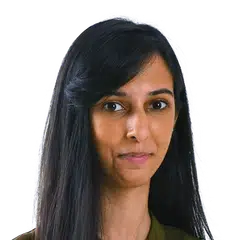More than medicine: The power of patient support groups
Sign up now: Get ST's newsletters delivered to your inbox

Support groups offer connection, education and a sense of community for patients and caregivers navigating their health journeys.
ST PHOTOS: TARYN NG, AZMI ATHNI
- Patient support groups in Singapore offer crucial emotional, social and educational resources for individuals and caregivers navigating challenging health conditions.
- The newly launched Singapore Vitiligo Support Group provides a safe space, workshops, and plans to work with medical professionals for holistic support.
- The After Breast Cancer Celebrate Life! programme helps patients and survivors rebuild emotional resilience post-treatment, addressing a gap often overlooked by medical interventions.
AI generated
SINGAPORE – When a person is diagnosed with a lesser-known or life-altering condition, the medical treatment plan often comes before the emotional or social support.
That is where patient support groups step in. From pulmonary hypertension to vitiligo to life after breast cancer, these patient support groups in Singapore are becoming lifelines. They offer connection, education and a sense of community for patients and caregivers navigating their health journeys.
Vitiligo: A space to share and feel seen
When Ms Madhumita Mahyandran was diagnosed with vitiligo in February, she was distraught. She held back her tears in front of the doctor, but after the appointment, she went to Novena Church, broke down and asked: “Why me?”
Vitiligo is an autoimmune disorder in which the body’s immune system attacks skin pigment cells, turning a person’s skin white due to the loss of pigment or melanin.
“I had so many questions running through my mind. Why did this happen to me when no one in my family has vitiligo? Will it affect my career? Can I still continue working?” says the 26-year-old nurse, who is single.
After the diagnosis, she withdrew from others, often cancelling meet-ups with friends and skipping family gatherings.
“I wasn’t prepared to explain or show my changing skin to others, and I felt vulnerable. Every time I looked in the mirror, I would quietly cry because it was hard to accept what I was seeing,” says Ms Madhumita.
Ms Malini Thyagesan, 47, understands these feelings all too well.
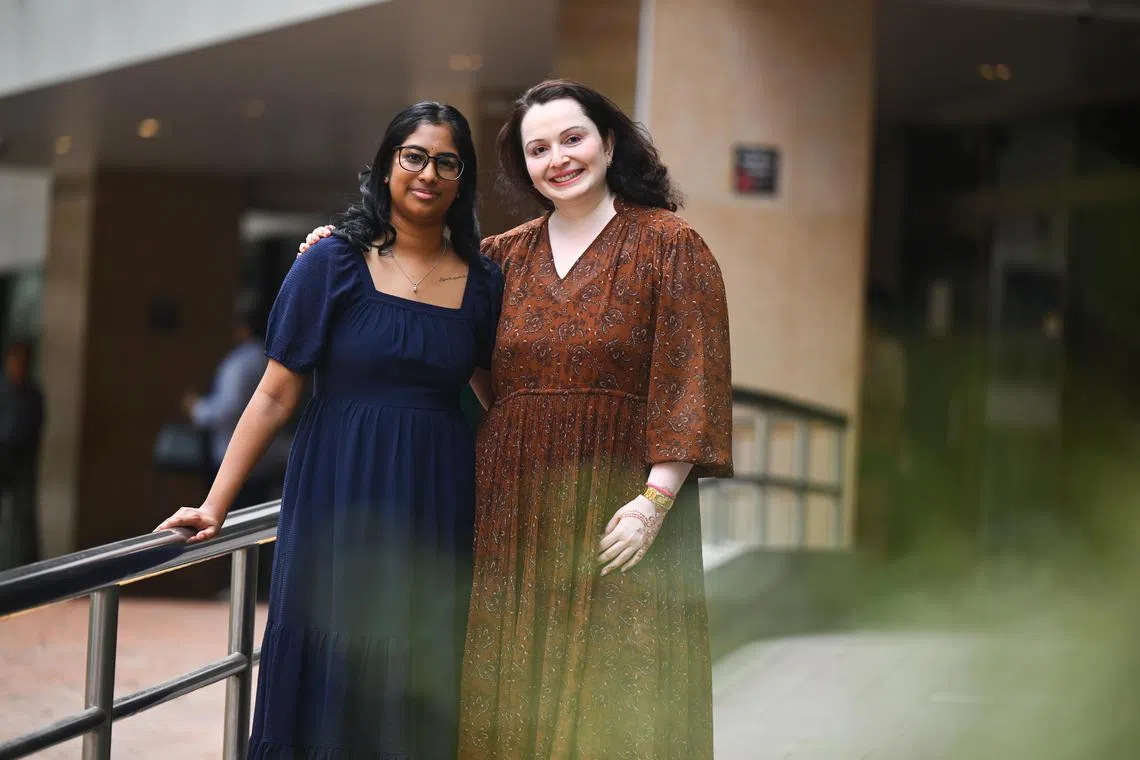
Ms Madhumita Mahyandran (left) and Ms Malini Thyagesan have vitiligo.
ST PHOTO: AZMI ATHNI
She has been living with the condition since 1990 and, along the way, met many others who felt alone, confused or unsure about how to deal with it.
Some were strangers who would approach her and ask how she coped, while others were parents asking for advice about their child.
“People were craving connection and, simply by sharing my own journey, I could make a difference. It made me realise people need a space to talk, share and feel seen,” says the senior lecturer at Republic Polytechnic’s School of Applied Science.
So, earlier in 2025, she decided to start a support group for those with vitiligo.
While there are no figures on the number of people with vitiligo in Singapore, the National Skin Centre estimates 1 per cent of around 50,000 new patients seen at the centre yearly have been diagnosed with the condition.
The Singapore Vitiligo Support Group, launched in June, has 15 members. It is planning to hold its first support group session and member bonding event later in July.
“We are planning workshops focused on sharing, including one on make-up tips specifically for people with vitiligo. As the group grows, we want to set up more regular meet-ups and online platforms so we can support one another more consistently,” says Ms Malini, a founding member of the group.
The group plans to work with doctors and psychologists to provide holistic support that addresses both the emotional and medical aspects of living with vitiligo.
Ms Malini also hopes that the team can partner hospitals and clinics to reach more individuals who could benefit from the group.
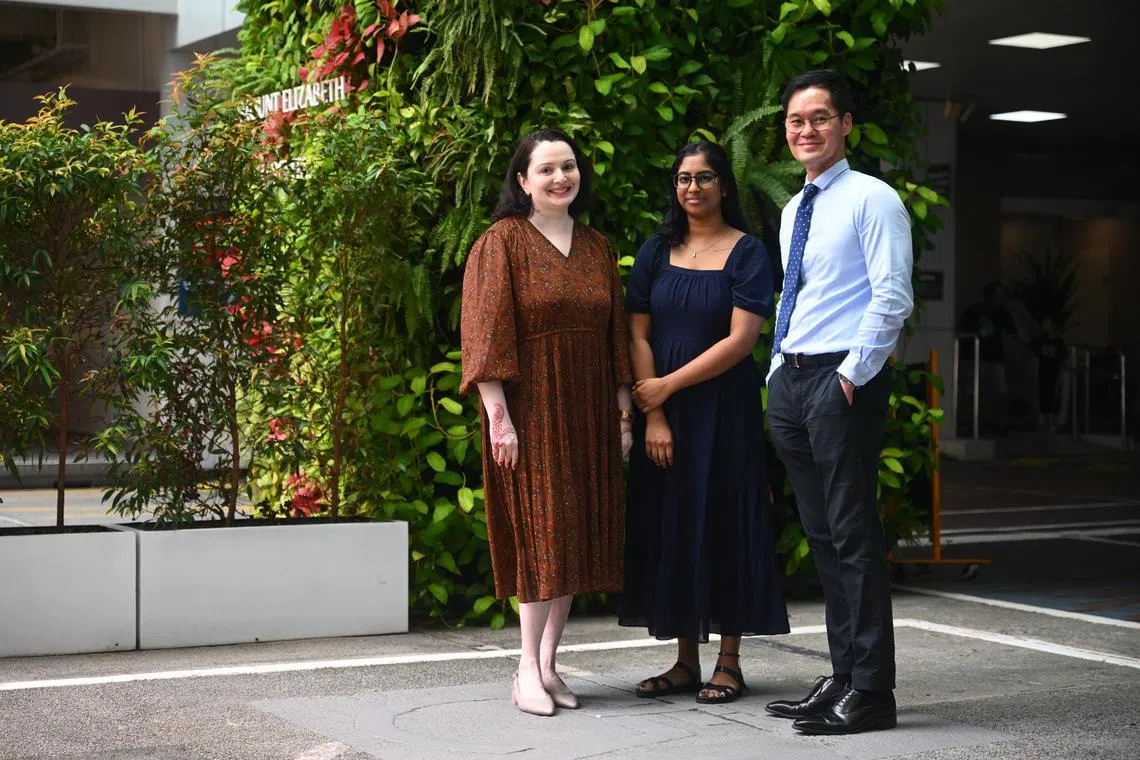
(From left) Ms Malini Thyagesan started the Singapore Vitiligo Support Group in June. Ms Madhumita Mahyandran was introduced to the group by her dermatologist, Dr Goh Boon Kee.
ST PHOTO: AZMI ATHNI
For now, most people learn about the group through word of mouth and social media.
Ms Madhumita learnt about it from the consultant dermatologist she sees at Skin Physicians, Dr Goh Boon Kee.
“I didn’t want to face this journey alone. Knowing that there were people who understood what living with vitiligo feels like gave me hope and comfort,” says Ms Madhumita.
Dr Goh says many people with vitiligo feel embarrassed about their condition. “For example, if it affects the hands, a simple handshake can be a social embarrassment. Some feel that they receive curious looks from passers-by in public, or are questioned or taunted by friends in school.”
He adds: “In certain ethnic groups, like Indians, having these white patches is a social taboo; an affected individual might have difficulty finding a spouse. As a result, patients with vitiligo often feel depressed and anxious, and may have low self-esteem.”
Such a support group, Dr Goh notes, allows affected individuals to connect with others who could empathise with what they are going through. “This emotional validation provides a strong sense of belonging which is not found in a doctor-patient relationship,” he says.
Info: People with vitiligo who are interested in joining the support group can go to www.vitiligosupportgroup.com
Pulmonary hypertension: Support group filled a gap that medicine could not
In 2006, Madam Nuurashikin Ahmad underwent heart surgery to repair a hole in her heart and expected to make a full recovery. But the following year, at 21, she was diagnosed with pulmonary hypertension.
The condition refers to high blood pressure in the lungs. It can strain the heart, leading to various complications, including shortness of breath, dizziness and heart failure.
“At that time, I couldn’t make sense of my emotions as I did not display any symptoms of pulmonary hypertension. I considered myself healthy since I wasn’t experiencing breathlessness or fatigue,” says the 39-year-old nurse, who is married and has a son aged three.
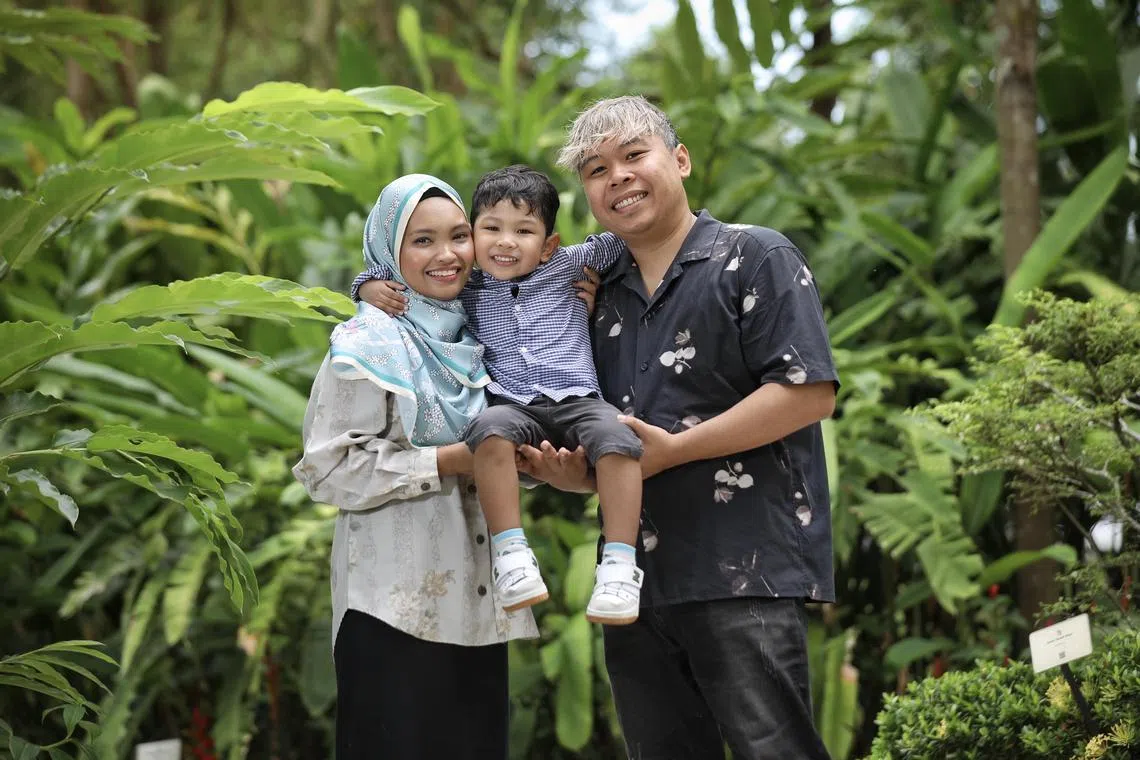
Madam Nuurashikin Ahmad was diagnosed with pulmonary hypertension at the age of 21. She is pictured with her three-year-old son, Adzriel Hunaifah, and her husband Abdul Hafiz Azman.
ST PHOTO: TARYN NG
When she became pregnant in 2021, a nurse at the National Heart Centre Singapore referred her to a support group: Pulmonary Hypertension Singapore (PHSG), where she could learn more about her condition and connect with other patients.
Pregnancy is considered high-risk for women with the disease due to the extra strain on the heart and lungs.
But beyond the medical risks, Madam Nuurashikin struggled with feeling emotionally unsupported.
“The doctors focused on treating the disease and were doing their best, but there was not much space for what I was feeling: the fear, grief and isolation. No one really asked how I was coping, only how I was breathing. The support group filled a gap that medicine could not,” she says.
Through the group, she received emotional support, practical advice and opportunities to connect with others through educational talks and social activities.
Her husband, Mr Abdul Hafiz Azman, a 35-year-old managing agent in the real estate industry, also joined the group to better understand how to support her.
The PHSG started as an informal group in 2004, but was officially registered as a non-profit organisation in 2015.
It estimates that around 300 or more people have the condition in Singapore. The group currently has about 30 active member patients and caregivers.
Dr Melissa Chan, the group’s vice-chairperson and a physiotherapist, says most early members were women in their 40s and 50s.
“Now, we’re seeing younger patients in their 20s and 30s. There’s also a stronger sense of community now, with members more openly supporting one another,” she says.
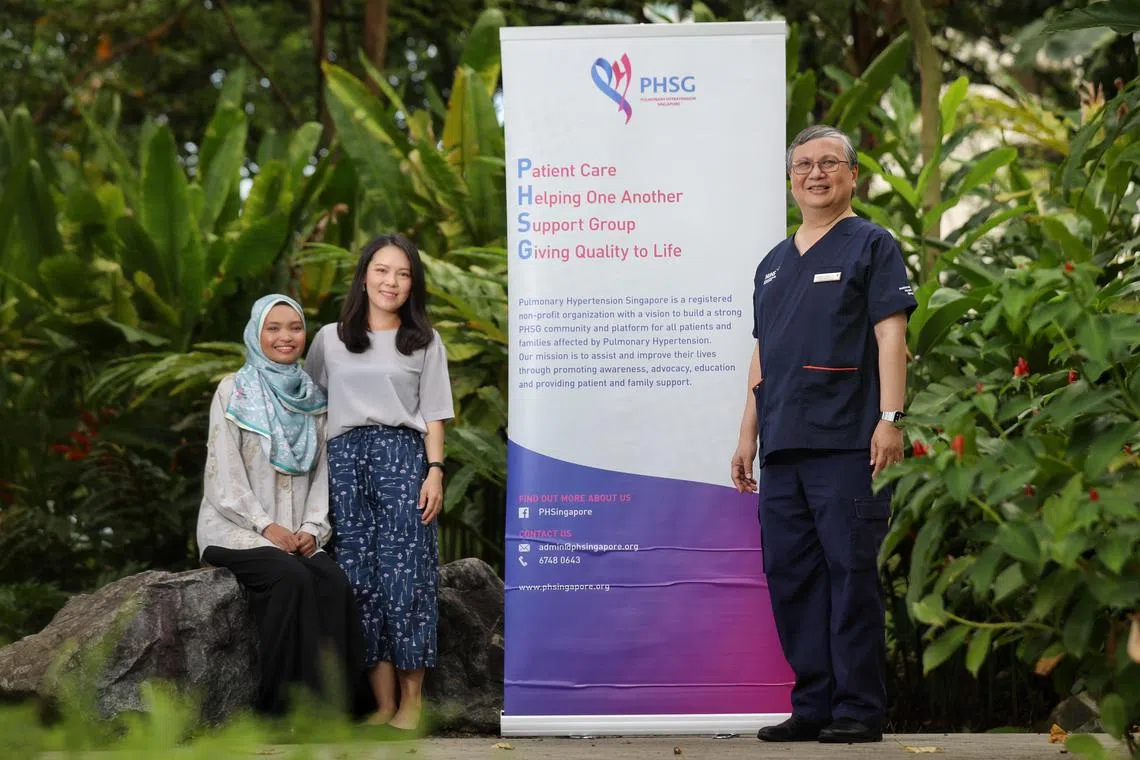
(From left) Madam Nuurashikin Ahmad; Dr Melissa Chan, vice-chairperson of Pulmonary Hypertension Singapore; and Associate Professor James Yip, executive director of National University Heart Centre Singapore.
ST PHOTO: TARYN NG
Associate Professor James Yip, executive director of the National University Heart Centre Singapore, says patients with pulmonary hypertension experience physical and mental stress comparable with those with major illnesses such as breast cancer and metastatic prostate cancer. The significantly reduced quality of life affects their ability to carry out even simple daily activities.
“Twenty years ago, when I started in this field, information was sparse and treatment options were limited. Drugs were largely unavailable and not subsidised. Some patients resorted to going overseas to buy medications like generics,” says Prof Yip.
Generics refers to generic drugs, medications that are chemically identical to brand-name drugs but are usually much cheaper.
The group stays in touch with members via WhatsApp and Facebook, posting updates, event invitations and helpful resources. Members can also ask questions and seek recommendations for items such as portable oxygen concentrators.
The group’s educational sessions are a key attraction, offering guidance on easing breathlessness and sharing coping strategies for both patients and caregivers.
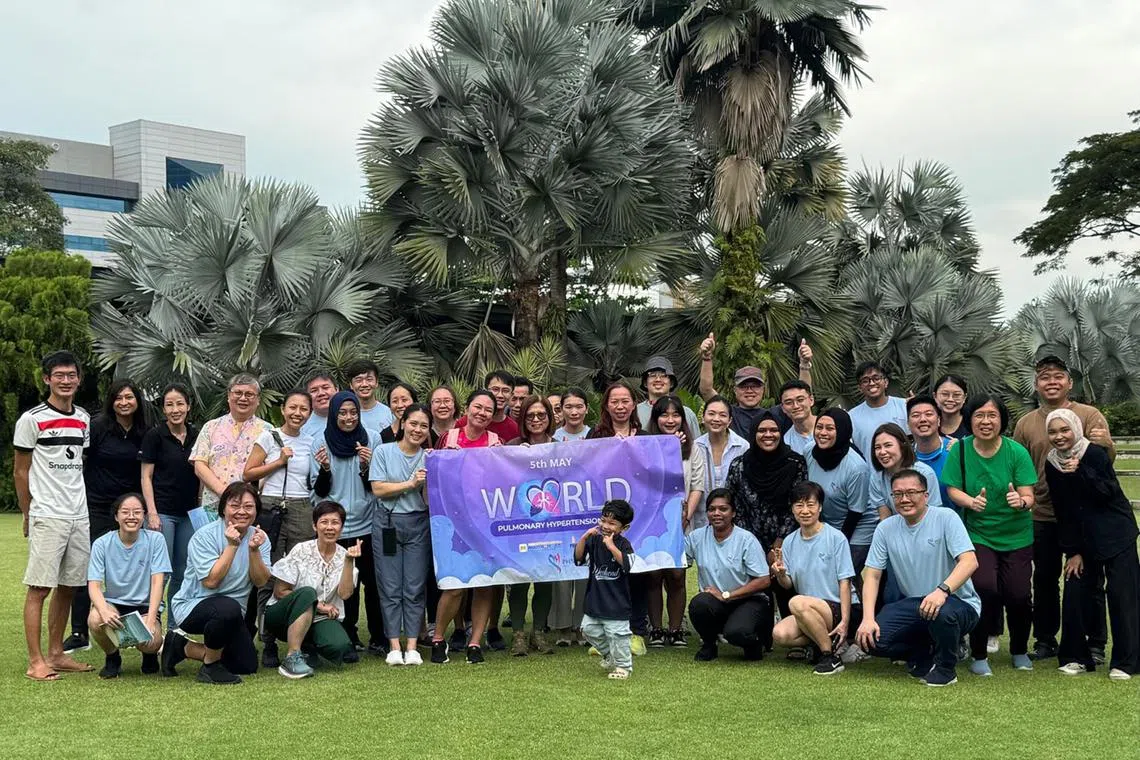
Patients, caregivers and volunteers of Pulmonary Hypertension Singapore gathering on May 3 to mark World Pulmonary Hypertension Day.
PHOTO: PHSG
PHSG organises at least two events a year: one around May 5 for World Pulmonary Hypertension Day, and another in November for Pulmonary Hypertension Awareness Month. As part of the latter, it also runs the Blue Lip Campaign, which highlights the symptom of blue lips caused by low oxygen levels.
For Madam Nuurashikin, the support group has been a lifeline.
“It offers connection, understanding and hope. Whether you speak or just listen, being with people who ‘get it’ can make all the difference. Sometimes, simply hearing ‘me too’ can be the most powerful form of support,” she says.
Info: Individuals with pulmonary hypertension and their caregivers who are interested in joining PHSG can e-mail admin@phsingapore.org
Breast cancer: Building a meaningful life beyond cancer
While advances in medical treatment have helped many women recover from breast cancer, mental and emotional healing after treatment often remains overlooked, says Dr Karmen Wong, medical director and specialist in medical oncology at Icon Cancer Centre at Gleneagles Hospital.
This was a gap Dr Wong, who has been treating breast cancer patients for more than 30 years, could not ignore.
Having walked with thousands of women through some of the darkest moments of their lives, she believed that surviving cancer should mean more than simply living longer. It should also mean living well.
“We’ve made great progress in breast cancer treatment. With better surgery, medicine, targeted therapy and immunotherapy, more women are physically well after their diagnosis,” says Dr Wong.
“But what about their mental well-being? A healthy mind helps us physically and emotionally.”
In May 2021, Dr Wong started After Breast Cancer (ABC) Celebrate Life!, an emotional well-being programme with her former patient Cally Koh, 60, and several others.
The aim was to support breast cancer patients and survivors in rebuilding their emotional resilience and reclaiming joy in life after treatment.
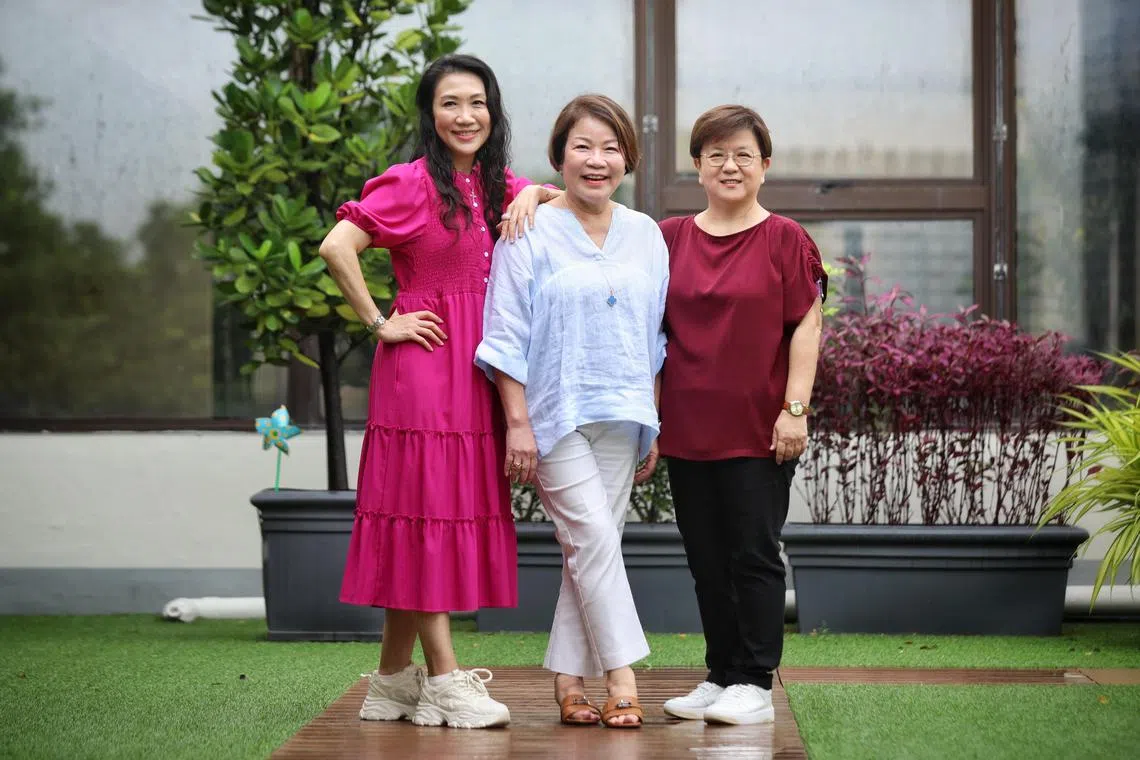
Dr Karmen Wong (centre), medical director and specialist in medical oncology at Icon Cancer Centre at Gleneagles Hospital, started the After Breast Cancer Celebrate Life! programme with several people. They include Ms Cally Koh (left), her former patient who has recovered. Ms Koh introduced the programme to Ms Gan Lay Leng (right), who has recovered from breast cancer.
ST PHOTO: TARYN NG
Developed with input from doctors, psychologists and breast cancer survivors, the four-session programme covers topics such as processing grief, restoring self-esteem and building meaningful routines for life beyond cancer.
For instance, its lead facilitator, psychologist Wendy Chua, holds focus group sessions with the women and introduces processes to help them open up and tell their stories, as well as acknowledge and reframe negative thoughts.
The Zoom sessions are facilitated by breast cancer survivors and have helped more than 190 women in six runs since the programme was launched in May 2021.
The programme costs $280 and is fully refundable for those who attend all sessions.
As a cancer support ambassador at Icon Cancer Centre, Ms Koh, a retiree who used to work in talent acquisition in the oil and gas industry, regularly visits Dr Wong’s clinic to speak with patients undergoing chemotherapy.
Drawing from her experience, she offers practical guidance, such as how to prepare for chemotherapy, where to get wigs and bras, and what to expect during surgery.
She also helps match women with others who have gone through similar procedures or diagnoses, providing tailored peer support.
Towards the end of their chemotherapy journey, she introduces them to the programme as a next step in their recovery.
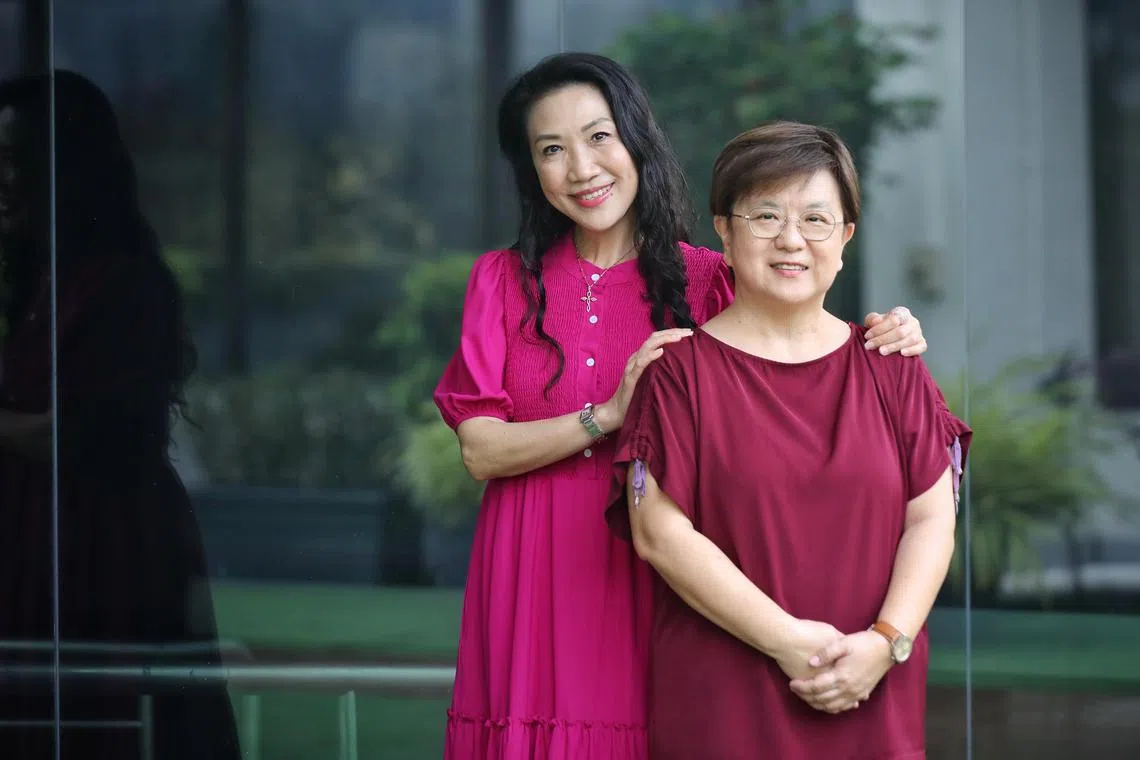
Ms Cally Koh introduced the After Breast Cancer Celebrate Life! programme to Ms Gan Lay Leng, who joined it in 2022.
ST PHOTO: TARYN NG
One of them was Ms Gan Lay Leng, a 59-year-old teacher, who found out she had triple negative breast cancer in July 2020.
She found the programme instrumental in processing the emotional aftermath of her diagnosis and learning to move forward.
“I didn’t realise the intensity of my emotional state until the start of the first session, when I was asked how I was feeling. When I opened my mouth and wanted to say ‘good’, my voice cracked and tears started to roll down my face,” says Ms Gan, who is single and has recovered.
The ABC team also actively engages the wider medical community.
Ms Koh, for example, has introduced the programme to over 30 healthcare professionals, including oncologists, radiologists, and breast and plastic surgeons. She also works with organisations such as the Breast Cancer Foundation and Singapore Cancer Society to reach more women who could benefit.
Says Dr Wong: “Participants have shared how this journey has transformed them. They have learnt to embrace a new life, to love themselves and to let go of past burdens.”
Info: Breast cancer patients and survivors who are interested to find out more about the programme can go to abccelebratelife.com

